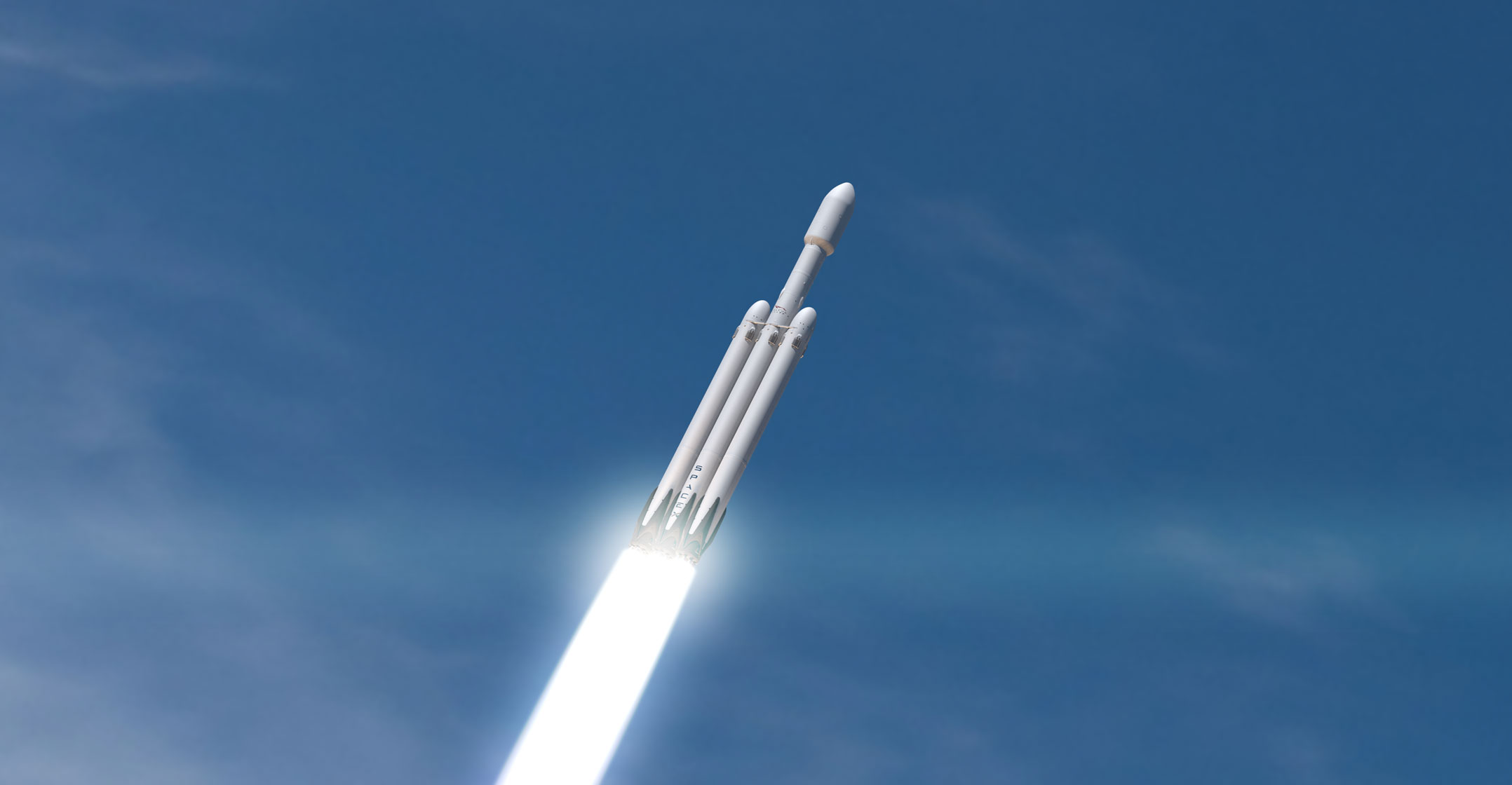
“It seems surreal to me,” said Elon Musk, proprietor of SpaceX, and for once he was understating things.
On Tuesday, his company blasted a 70 metre rocket into orbit, returned its two side boosters to Earth for a flawlessly synchronised landing, and — with exquisite nerd flair — propelled Musk’s own Tesla Roadster toward deep space, where it’s expected to orbit the sun for hundreds of millions of years.
Surreal, yes. But it was also a triumph of private enterprise and a milestone in American space-faring. Its true significance, in fact, may not be apparent for decades.
Known as the Falcon Heavy, the new projectile has 27 engines generating 2.3m kilograms of thrust, making it the most powerful rocket ever built by a private company.
It’ll soon face competition. Musk’s rival space-billionaire, Jeff Bezos, is also building a new heavy-lift rocket. So is United Launch Alliance, an aerospace joint venture. SpaceX is already at work on its next generation, the BFR, which it expects will one day transport people to Mars. The US government, incongruously, is building its own behemoth, the Space Launch System, at a cost of some US$23bn and counting.
Sceptics accurately note that this rivalry is heating up just as commercial demand for such firepower is dwindling. Satellites are getting smaller and lighter, while improvements in engine technology mean that smaller rockets — such as SpaceX’s Falcon 9 — can handle bigger payloads. Customers may be hard to come by for the Falcon Heavy.
This misses the bigger picture, however. Competition in the space business — worth some $323bn annually — is driving down costs and stimulating both innovation and demand. By mastering reusable rocketry, SpaceX has substantially reduced the expense of getting stuff into orbit, to the benefit of everything from navigation systems to data transmission. At $90m/launch, the Falcon Heavy will be able to carry twice the payload of its nearest competitor for about one-fifth the cost.
To the moon
In the near term, this should enable some cheaper military launches, and might also allow Nasa to conduct more frequent research missions into deep space. Conceivably, the Falcon Heavy could even transport people to the moon, at a fraction of the expected cost of an SLS launch.
But longer term, and more intriguingly, the new rocket could open up novel commercial possibilities. Companies are already testing gear for asteroid mining, space tourism, moon expeditions and much else, spurred on in no small part by SpaceX’s earlier achievements. Add cheap, reliable heavy-lift rockets to the equation and the opportunities only expand. A few decades from now, more far-out stuff — space-based energy production, say — may no longer be science fiction.
Even if the Falcon Heavy becomes obsolete, in other words, it will represent an important landmark in the grand American space experiment. Once again, SpaceX has tried something unreasonable — surreal, even — and once again, it has prevailed. — (c) 2018 Bloomberg LP

